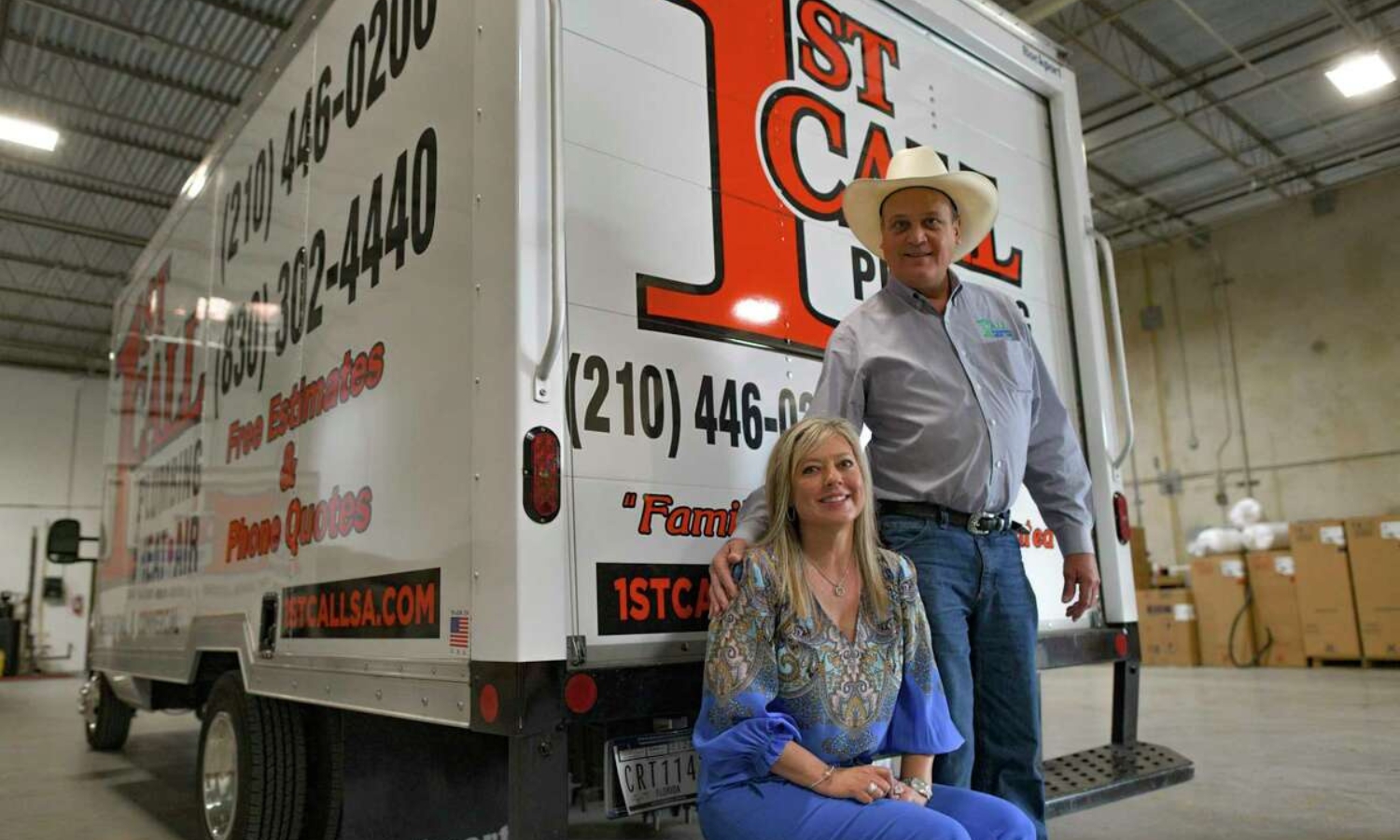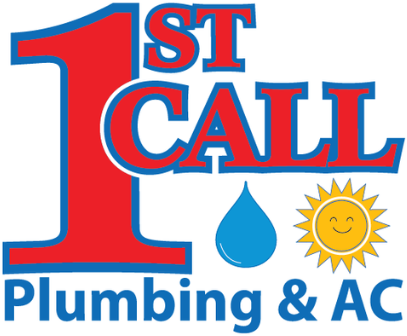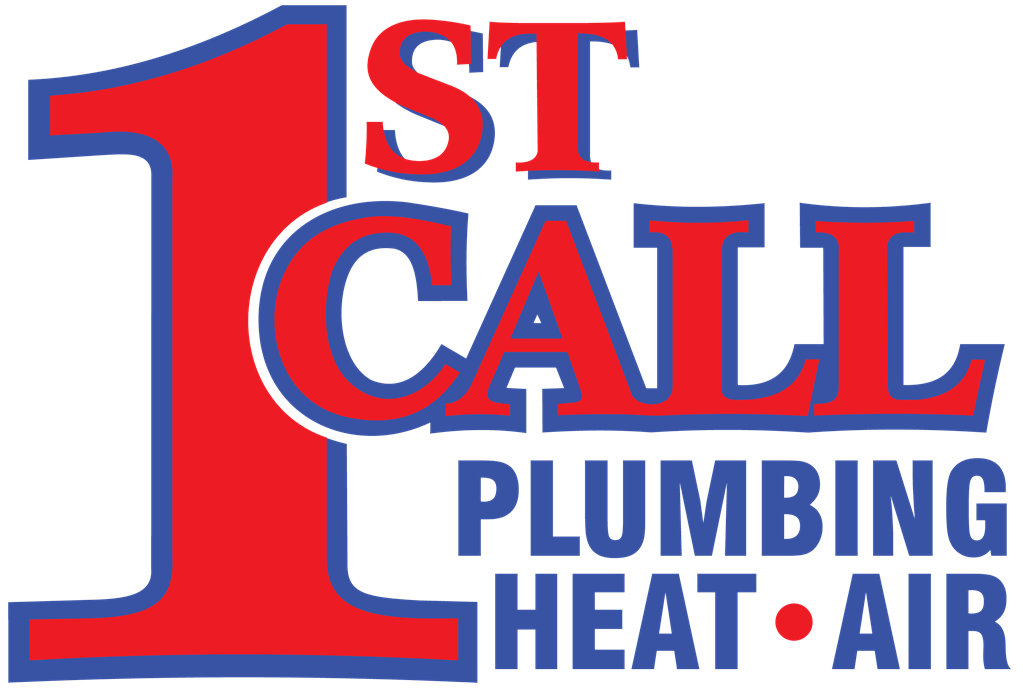What is an AC Tune Up?
Are AC System Tune Ups Necessary?
What Does an AC System Tune Up Include?
How Much Does an AC System Tune Up Cost?
As a homeowner, ensuring your air conditioning system is running smoothly is essential for keeping your home comfortable, especially during the transition into the scorching Texas summers. One of the best ways to maintain peak performance is through regular AC tune-ups. But what exactly is an AC System tune-up? Are AC tune ups really necessary, and how often should you schedule one?
In this comprehensive guide, we’ll break down everything you need to know about AC unit tune-ups, their importance, and how they can save you money in the long run. We also include a seasonal AC checklist and DIY tips for homeowners.
Whether you need a simple maintenance check or a more thorough AC service, 1st Call Plumbing & AC is always here to help!
Table of Contents
- Introduction
- What is an AC Tune-Up?
- Are AC Tune-Ups Necessary?
- What Does an AC Tune-Up Include?
- Common AC Problems Prevented by Regular Tune-Ups
- How Often Do You Need an AC Tune-Up?
- Understanding the Cost of an AC Tune-Up
- DIY AC Maintenance vs. Professional Tune-Ups
- 1st Call Plumbing & AC: Your Trusted HVAC Partner

What is an AC Tune-Up?
An AC unit tune-up is a preventive maintenance service performed by HVAC professionals to ensure that your air conditioning system is running efficiently and effectively. During a tune-up, an experienced technician will inspect, clean, and optimize various components of your system, addressing minor issues before they become major problems.
Are AC Tune-Ups Necessary?
Many homeowners wonder if an AC tune-up is truly necessary or just an upsell from HVAC companies. The reality is that regular maintenance provides several key benefits:
- Extends the Lifespan of Your AC System
- Your air conditioning unit is a significant investment, and you want it to last as long as possible. Regular tune-ups help prevent major issues that could shorten your system’s lifespan. Without proper maintenance, minor issues can escalate into costly ac repairs or even premature system replacement. A well-maintained AC unit can last 15-20 years, while a neglected system may fail in under 10 years.
- Improves Energy Efficiency & Reduces Bills
- A clean, well-maintained air conditioning system operates more efficiently, using less energy to cool your home. When components like coils and filters are dirty, the system has to work harder, increasing your utility bills. Regular tune-ups help you save money on energy costs, often reducing energy consumption by 10-30% annually.
- Prevents Unexpected Breakdowns
- There’s nothing worse than having your AC unit fail on the hottest day of the year. A tune-up helps catch small issues before they turn into major breakdowns, ensuring your system works when you need it most. HVAC professionals estimate that over 80% of costly AC repairs could have been avoided with regular maintenance. During the tune-up, we will be able to tell you if it is time for you to replace your air conditioning system.
- Maintains Healthy Indoor Air Quality
- Your AC system circulates air throughout your home. If it’s clogged with dust, dirt, or mold, it can contribute to poor indoor air quality, leading to respiratory issues, allergies, and other health concerns. Regular cleaning and maintenance help keep your air clean and healthy by eliminating allergens and bacteria from your system.
- Keeps Your Warranty Valid
- Many air conditioning manufacturers require routine maintenance as part of their warranty agreements. Skipping tune-ups could void your warranty, meaning you’d be responsible for expensive repairs or replacements. Having documentation of professional maintenance can save you thousands in repair costs if an issue arises.
- Ensures Proper Cooling & Comfort
- A neglected air conditioning system may struggle to keep your home cool, leading to hot spots and inconsistent temperatures. Regular tune-ups ensure that airflow is balanced and your system is running at peak performance, keeping every room in your home comfortable.

What Does an AC Tune-Up Include?
A thorough HVAC system tune-up from 1st Call Plumbing & AC typically includes:
- Inspection of system components: Checking the compressor, evaporator coils, condenser coils, refrigerant levels, and electrical connections to identify wear and tear or potential failures.
- Cleaning of key components: Removing dust and debris from coils, fans, and drain lines to ensure maximum efficiency and prevent airflow restrictions.
- Checking and replacing filters: Dirty air filters reduce airflow and cause your system to work harder, leading to higher energy consumption and potential system strain.
- Refrigerant level check: Ensuring the correct refrigerant charge to avoid cooling inefficiencies and excessive energy usage.
- Thermostat calibration: Verifying the thermostat’s accuracy for proper temperature regulation and improved home comfort.
- Lubrication of moving parts: Reducing wear and tear to extend the system’s lifespan and prevent mechanical breakdowns.
- Tightening electrical connections: Preventing hazards and ensuring safe operation by checking wiring and components for corrosion or loosening.
- Checking and clearing drain lines: Avoiding water leaks, mold growth, and potential system malfunctions caused by clogged condensate drain lines.
- Testing system efficiency: Measuring the system’s cooling performance, airflow, and cycling behavior to ensure optimal operation.
- Inspecting ductwork: Checking for leaks or blockages that can lead to energy inefficiencies and uneven cooling.
1st Call Plumbing & AC’s technicians will perform these steps to ensure your AC operates efficiently, reducing the risk of breakdowns during peak usage, prolonging system life, and maintaining consistent indoor comfort.

Common AC Problems Prevented by Regular Tune-Ups
Skipping routine maintenance can lead to a variety of avoidable AC issues. Here are some of the most common problems that regular tune-ups help prevent:
- Refrigerant Leaks
- Refrigerant is essential for cooling, and leaks can lead to inefficient performance, warm air output, and even complete system failure. During a tune-up, 1st Call technicians check refrigerant levels and identify any leaks before they become major problems.
- Frozen Evaporator Coils
- Dirt buildup on coils or low refrigerant levels can cause evaporator coils to freeze, leading to restricted airflow and reduced cooling efficiency. Regular cleaning and refrigerant checks prevent this issue.
- Clogged Condensate Drain Lines
- Over time, air conditioner drain lines can become clogged with algae, dirt, and debris, leading to water leaks, mold growth, and even system shutdowns. Clearing these lines during a tune-up ensures proper drainage.
- Faulty Electrical Connections
- Loose or corroded electrical connections can cause your AC unit to short-cycle, overheat, or fail entirely. 1st Call technicians will tighten and inspect electrical components during every tune-up to prevent these issues.
- Compressor Failure
- The compressor is the heart of your air conditioner system. Without proper lubrication and refrigerant levels, it can overheat and fail—an extremely costly repair. Routine tune-ups help keep the compressor in good condition.
By addressing these common issues before they cause serious damage, regular AC maintenance helps homeowners avoid unexpected and costly repairs.

How Often Do You Need an AC System Tune Up?
The general recommendation is to schedule an AC tune-up at least once a year, preferably in the spring before the peak cooling season. However, certain factors may require more frequent maintenance:
Factors That Influence Tune-Up Frequency:
- Climate: In Texas, where ac units run almost year-round, a tune-up every 6 months may be ideal to ensure maximum efficiency and reliability.
- Age of the System: Older air conditioning systems (10+ years) should have tune-ups twice a year to prevent breakdowns and keep them operating efficiently.
- Usage: If you use your AC system heavily, such as in larger homes or multi-story properties, consider more frequent maintenance to avoid excessive wear and tear.
- Allergies or Pets: Homes with pets or allergy sufferers should have regular filter changes and tune-ups to improve air quality and prevent buildup of pet dander and allergens.
- Past Maintenance History: If your air conditioning system has a history of frequent repairs or performance issues, more frequent tune-ups can help catch problems early and prevent unexpected failures.

Signs Your AC Needs a Tune-Up Now
Even if you’ve had a recent ac tune-up, you might need an additional check if you notice any of the following:
- Weak airflow from vents, indicating a possible blockage or failing blower motor.
- Unusual noises (banging, rattling, or buzzing), which could signal loose components, debris, or mechanical issues.
- Warm air blowing instead of cool air, often caused by refrigerant issues or a malfunctioning compressor.
- Higher than normal energy bills, suggesting your system is running inefficiently.
- Frequent cycling on and off, a sign of a faulty thermostat or an oversized/undersized system.
- Water leaks or excess moisture near the system, which could indicate a clogged drain line or refrigerant leak.
- Strange odors from vents or the unit, such as musty smells from mold buildup or a burning smell from electrical issues.
If you experience any of these issues, contact 1st Call Plumbing & AC immediately for a professional inspection to prevent further damage.
Understanding the Cost of an AC Tune-Up
Many homeowners hesitate to schedule an AC tune-up due to cost concerns, but in reality, tune-ups are an affordable way to prevent costly repairs and improve efficiency.
How Much Does an AC Tune-Up Cost?
The San Antonio area the cost of an AC tune-up varies depending on the AC system location, system size, and service provider, but generally ranges from $75 to $200 per visit. For a limited time 1st Call Plumbing & AC is offering a $109 Scheduled tune-up to help homeowners get ready for the hot summer months.

Factors That Influence Tune-Up Costs:
- System Age: Older AC units often require more extensive maintenance.
- Refrigerant Levels: If refrigerant needs to be recharged, this can increase the cost.
- Repairs Needed: If minor repairs are necessary, they may add to the total cost.
- Service Plans: Signing up for an annual maintenance plan can reduce per-visit costs.
How AC Tune-Ups Save You Money in the Long Run
- Prevent costly repairs: Small issues caught early prevent expensive breakdowns.
- Improve efficiency: A well-maintained system uses less energy, lowering utility bills.
- Extend system lifespan: A properly maintained AC unit lasts years longer than a neglected one. Read how your old HVAC system could be costing you more money.
By investing in regular tune-ups, homeowners can save thousands of dollars over the lifetime of their AC unit.

DIY AC Maintenance vs. Professional Tune-Ups
While some basic maintenance can be done by homeowners, professional tune-ups offer a more thorough inspection and servicing.
Homeowner Maintenance Tasks:
- Change air filters every 1-3 months.
- Keep the outdoor unit free of debris and vegetation.
- Clean air vents and registers inside your home.
- Monitor thermostat settings for efficiency.
Professional AC Tune-Up Tasks:
- Deep cleaning of internal components.
- Checking refrigerant levels and recharging if necessary.
- Identifying early signs of mechanical failure.
- Lubricating and calibrating all moving parts.
DIY AC Maintenance Tips for Homeowners
Homeowners can take steps to maintain their air conditioning systems between Tune Ups and service visits. Here are some key maintenance tasks you can do:
- Change air filters regularly: Dirty filters restrict airflow and reduce efficiency. Replace them every 1-3 months, especially if you have pets or allergies.
- Keep outdoor units clean: Remove leaves, dirt, and debris around the unit to ensure proper airflow. Trim any vegetation at least 2 feet away.
- Check vents and registers: Make sure vents are open and unobstructed to allow even cooling.
- Monitor energy bills: A sudden increase in energy costs may indicate your AC is struggling and needs professional attention.
- Listen for unusual noises: Grinding, rattling, or buzzing sounds can signal loose or damaged components.
Seasonal AC Maintenance Checklist
Spring & Summer (Peak Cooling Season)
- Schedule a professional AC tune-up with 1st Call Plumbing & AC before summer heat hits.
- Replace air filters before increased use.
- Clear debris around the outdoor unit for optimal airflow.
- Test your thermostat and adjust settings for efficiency.
Fall & Winter (Off-Season Maintenance)
- Turn off exterior AC components if not in use.
- Cover the outdoor unit to protect it from debris (but ensure ventilation).
- Clean air vents and ducts to improve indoor air quality.
- Check insulation around refrigerant lines to prevent heat loss.
Following this checklist can extend the life of your system and prevent emergency repairs.

Why Choose 1st Call Plumbing & AC for Your AC Tune-Up?
At 1st Call Plumbing & AC, we understand the importance of keeping your home cool and comfortable. Our experienced technicians provide top-tier AC tune-ups to keep your system running smoothly year-round.
Why Trust 1st Call Plumbing & AC for your AC Tune Up, maintenance, repairs or replacement?
✅ Comprehensive 21-point inspections to cover all aspects of your AC unit.
✅ Transparent pricing—no hidden fees or unnecessary repairs.
✅ Same-day and emergency service available for urgent needs.
✅ Satisfaction guarantee—we stand behind our work!
Schedule Your AC Tune-Up with 1st Call Plumbing & AC Today!
Don’t wait for your AC to break down in the middle of summer—schedule your tune-up with 1st Call Plumbing & AC today! Check out our special offers page for a $109 scheduled tune-up.
🔹 Click here to schedule an appointment or all us now at (210) 446-0200.
A small investment in regular maintenance can keep your AC running efficiently, lower your energy bills, and give you peace of mind. Get ahead of the heat—contact us today!



